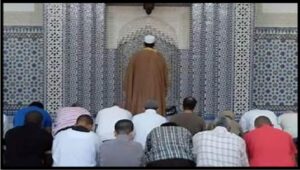
Introduction
The American Muslim community stands at a defining crossroads. As the complexities of modern life intersect with inherited religious frameworks, our spiritual institutions, particularly mosques, must rise to meet the needs of a diverse, educated, and critically engaged congregation. Central to this evolution is the role of the imam: the spiritual guide, intellectual leader, community ounselor, and moral exemplar. And yet, across the United States, a troubling trend has taken root. Imams are being selected not on the basis of scholarly rigor or theological breadth, but for superficial or narrowly defined qualities, such as recitation skills, personal piety, or Qur’anic emorization.
While these attributes are deeply respected within our tradition, they are insufficient alone to equip an individual with the intellectual and spiritual leadership required to guide communities in the complex social, political, and ethical terrain of 21stcentury America. This essay makes the theological and rational case that the Muslim ummah in the West must urgently recalibrate its standards for religious leadership. We must move beyond charisma and ritual fluency, toward an emphasis on verified academic and scholarly training, whether through recognized Islamic institutions or
long-term, credentialed study with reputable scholars. Furthermore, the inclusion of academically qualified women in all public and theological arenas of Islamic discourse is not merely optional, it is essential, theologically sound, and mandated by the ethical trajectory of Islam itself.
Part I: The Crisis of Leadership in American Mosques
A. Superficial Qualifications and Their Limitations
Many masajid across the United States select imams based on qualifications that, while rooted in Islamic tradition, are no longer sufficient on their own in today’s sociopolitical context. The ability to lead salah, to recite Qur’an beautifully, or to have committed the entirety of the Qur’an to memory is praiseworthy, but not tantamount to theological competence.
The Prophet Muhammad (peace be upon him) was not only a man of exemplary character and ritual discipline, but also a statesman, teacher, legal theorist, and interpreter of divine meaning. His companions, such as Ibn Abbas and Aisha (may God be pleased with them), were revered not simply for their piety, but for their profound scholarly authority. To reduce Islamic leadership to mere memorization is to hollow out the richness of our tradition, and risk enabling a theologically shallow Islam that cannot meet the intellectual and moral challenges of our age.
A leadership model that emphasizes surface qualities over substantive knowledge may keep communities comfortable in the short term, but it undermines their ability to grapple with larger issues such as systemic injustice, interfaith challenges, and the ethical dilemmas of modern life.
B. The Consequences of Inadequate Leadership
The theological underqualification of many imams has created a vacuum in Islamic discourse. Instead of fostering critical thinking, intellectual diversity, or theological nuance, many mosque sermons and public discussions are steeped in repetition, fear-based rhetoric, or reactive religiosity. This has resulted in:
• Intellectual disengagement: Young Muslims, especially those in college or graduate school, often feel alienated by simplistic or reductive messages delivered from the minbar.
• Dogmatism and stagnation: Communities are deprived of perspectives that challenge them to grow, reflect, and engage ethically with the world.
• Marginalization of women: Without rigorous scholarship guiding gender discourse, women’s roles are often relegated to outdated norms and tokenized functions.
• Loss of moral credibility: Imams who lack training in psychology, interfaith dialogue, or Western legal systems are unequipped to speak authoritatively on issues that matter to American Muslims: racism, climate ethics, reproductive justice, or artificial intelligence.
Ultimately, the cost is borne by the youth who leave the mosques in search of more intellectually honest spaces, and by the broader community which loses credibility in interfaith and civic contexts.
Part II: What Makes a Theologically Qualified Imam?
A. Sacred and Academic Knowledge
An imam in America must have robust grounding in both sacred sciences and contemporary liberal arts. At minimum, this includes:
• Mastery of traditional Islamic sciences: Qur’anic exegesis (tafsir), hadith, fiqh, usul al-fiqh, theology (‘aqidah), Arabic linguistics, and Islamic history.
• Academic rigor in the humanities: Philosophy, ethics, sociology, gender studies, psychology, anthropology, and comparative religion.
This dual training allows the imam to contextualize Islam, not dilute it, to offer perspective, not dogma, and to facilitate critical thinking, not blind allegiance. The Qur’an itself invites this kind of intellectual rigor:
“Will they not reflect on the Qur’an, or are there locks upon their hearts?” (Qur’an 47:24)
B. The Prophet’s Model: Compassion, Consultation, and Knowledge
The Prophet did not impose his opinion unilaterally, he consulted, debated, and empowered others to think. Even in Friday khutbahs, which today have become podiums of one-way lecturing, his method was dialogical and transformative. He addressed ethical issues, not just doctrinal purity. He did not weaponize theology, but used it to elevate character, dignity, and civic responsibility.
An imam who lacks the intellectual and moral capacity to offer multiple theological viewpoints and guide people to reflect deeply upon them is not following the prophetic model. We must not conflate traditionalism with authenticity, nor charisma with knowledge.
Part III: The Theological Mandate to Center Qualified Women
The current marginalization of women from theological leadership and mosque governance has no basis in the Qur’anic vision of egalitarian ethical engagement. Nowhere in the Qur’an are women prohibited from teaching, interpreting, or leading public religious discourse. In fact, women such as Aisha, Umm Salama, and Fatima bint Qays were prominent voices in transmitting hadith, ffering legal rulings, and influencing public religious thought
Islamic epistemology does not restrict sacred knowledge by gender, it elevates sincerity, scholarship, and spiritual insight. To exclude academically trained Muslim women from addressing full congregations or participating in theological panels is not only un-Islamic, it is an ethical betrayal of the tradition’s inclusive spirit.
Furthermore, the Qur’an’s call for shura (mutual consultation) in leadership (Qur’an 42:38) demands that all members of the community, including women, be consulted, represented, and empowered.
If American mosques exclude women from public theological leadership, they will continue to lose legitimacy in the eyes of new generations who demand gender equity as a matter of justice and faithfulness to God’s message.
Part IV: A Vision for the Future
A. Raising the Bar for Hiring Imams
Mosque boards must implement rigorous hiring criteria that go beyond performative religiosity. Recommendations include:
• Verifiable degrees in Islamic studies from recognized seminaries or universities (Al-Azhar, Zaytuna, Qalam Institute, Hartford Seminary, or international equivalents).
• Documented apprenticeship or ijazah with reputable scholars across multiple disciplines.
• Demonstrated ability to engage Western academic thought and public discourse.
• Gender equity in programming and discourse, including panels, khutbahs, and symposia.
Boards must also establish transparent review systems and continuing education requirements, ensuring that imams evolve with their communities rather than stagnate.
B. Friday Sermons as Platforms for Intellectual and Moral Elevation
The minbar is not a place to rant against modernity or provoke reactionary fervor. It is a sacred platform meant to awaken higher consciousness, nurture mercy, and elevate character. The Prophet (peace be upon him) rarely used the khutbah to single out enemies or incite panic, rather, he used it to remind people of God’s mercy, justice, and their ethical duties. We must reclaim this rophetic ethos.
C. Reimagining Mosque Programming
Community nights, panels, youth circles, and interfaith gatherings should be led by diverse scholars, including women, who are theologically equipped. These forums must go beyond cultural celebrations and address real-world issues: climate change, anti-Black racism, refugee rights, domestic violence, ethics in artificial intelligence, and the future of faith in secular democracies.
Mosques should be incubators for ethical leadership, not relics of cultural nostalgia. They should be places where every congregant, regardless of gender or background, finds both intellectual nourishment and spiritual belonging.
Conclusion
American Muslims do not need more charismatic storytellers or unqualified moral authorities. We need intellectually serious, spiritually grounded, theologically trained leaders who can shepherd our communities with compassion, courage, and critical thought.
Islam is not a static inheritance, it is a living tradition that calls for ijtihad (independent reasoning), rahmah (mercy), and hikmah (wisdom). We must honor its intellectual legacy by raising the bar for religious leadership, empowering qualified women to speak on the public stage, and embracing the pluralism and complexity that modern life demands.
To mosque board members, donors, and community elders: the future of our ummah depends not on those who recite the Qur’an with beauty alone, but on those who understand it with depth, courage, and responsibility. Let us invest accordingly.


